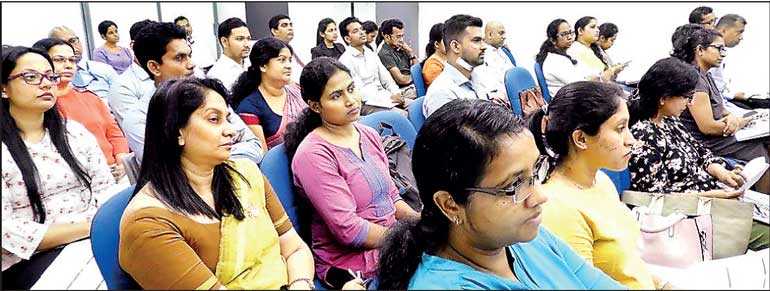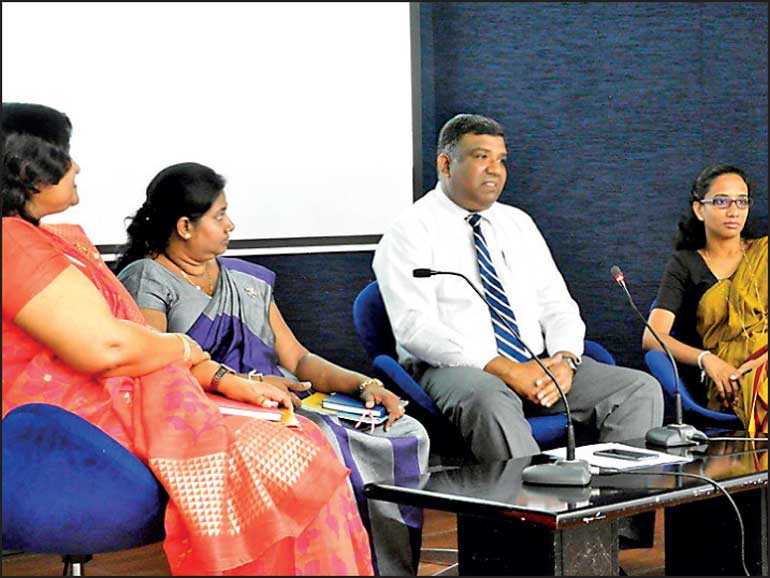Tuesday Feb 17, 2026
Tuesday Feb 17, 2026
Wednesday, 18 September 2019 00:00 - - {{hitsCtrl.values.hits}}


With the objective of giving an in-depth understanding of the laws governing superannuation benefits and taxation on employment income, lump sum payments and terminal benefits, the Employers’ Federation of Ceylon (EFC) recently conducted a training program at its premises. The program which was initiated by the Training Division of the EFC was designed for both employers and other stakeholders interested in the subject.
The modules of the training session included laws governing EPF, ETF and Gratuity, overview of employment taxation, PAYE Tax on employment income/earning and lump sum payments and taxation on terminal benefits. As EFC Head of Training Yashoravi Bakmiwewa noted, the session was well-attended and reflected EFC’s commitment to equip multiple business partners with evolving knowledge.
“EFC’s commitment is to expand its ‘training mix’ in order to provide a wider spectrum of knowledge on employment related subject areas. The training sessions provided a distinct opportunity for the participants to seek clarifications on specific practical issues they were confronted with from the subject experts,” said Bakmiwewa adding that the enthusiasm displayed by the participants was a clear indication of the need to continue trainings of this nature in the future as well. The training session harnessed the expertise of both the EFC’s professional staff as well as those from the Department of Inland Revenue. While the modules related to superannuation benefits were conducted by the EFC’s staff, guest speakers from the Department of Inland Revenue delivered the session on employment taxation.
Several more training programs initiated by the EFC’s Training Division are also in the pipeline. These include sessions on laws relating to employment of women and young persons, leave, holidays and overtime in the private sector, occupational safety and health interventions for productivity improvement, training on waste management practices, managing employee rewards and supervisory development.